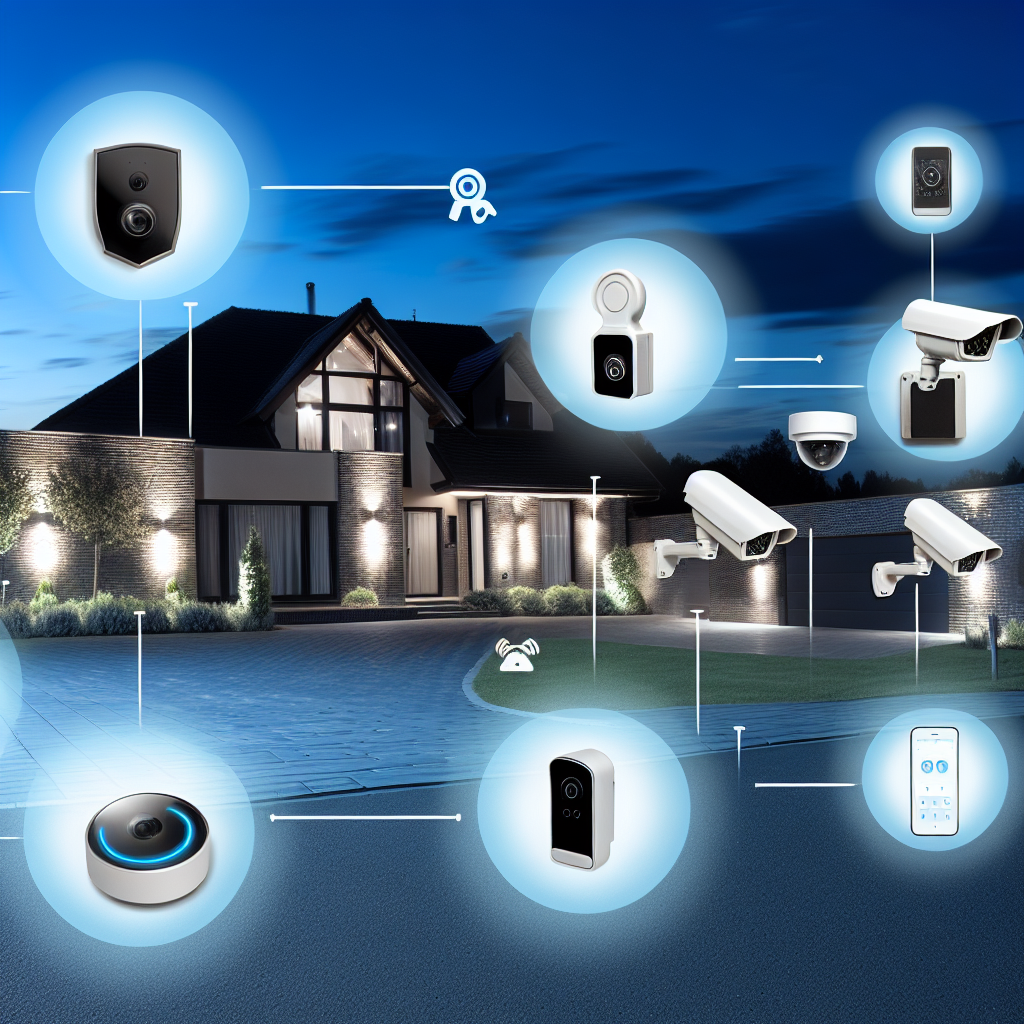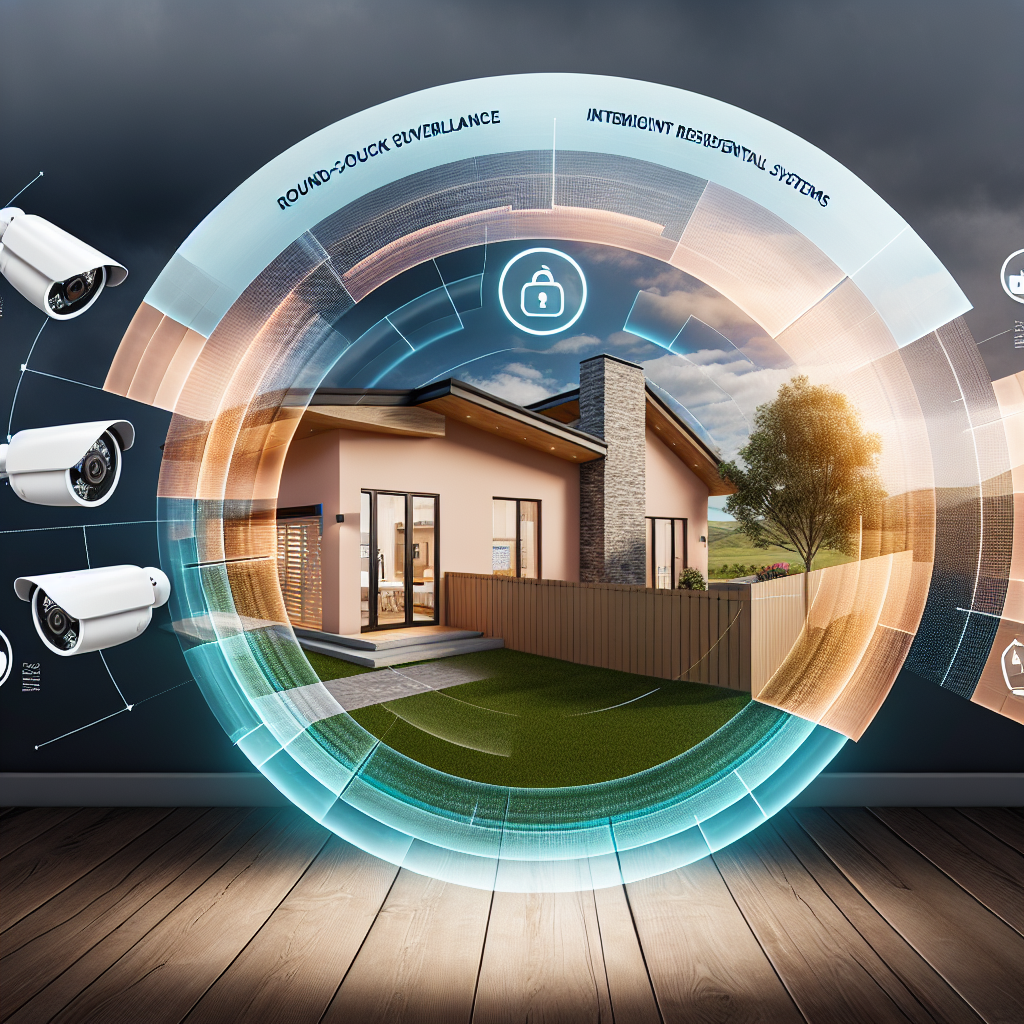“Protect your home and ensure your family’s safety with professional security monitoring. Don’t leave your residential security to chance. Click here for a free quote from American Security Products and take the first step towards a secure home.”
The Importance of Security Monitoring for Residential Security
In today’s world, ensuring the safety and security of our homes has become a top priority for many homeowners. With the rise of crime rates and the constant threat of burglaries, it is essential to take proactive measures to protect our homes and loved ones. One of the most effective ways to do so is through security monitoring.
Security monitoring is a system that involves the use of technology to monitor and protect your home from potential threats. It typically includes surveillance cameras, motion sensors, and alarms that are connected to a central monitoring station. This station is responsible for monitoring any suspicious activity and alerting the authorities if necessary.
The importance of security monitoring for residential security cannot be overstated. It provides homeowners with peace of mind, knowing that their homes are being monitored 24/7. In case of any security breach, the monitoring station will immediately notify the authorities, increasing the chances of catching the intruder and minimizing any potential damage.
Moreover, security monitoring can also act as a deterrent for potential burglars. Knowing that a home is equipped with a security system can make them think twice before attempting to break in. This can significantly reduce the chances of a burglary occurring in the first place.
Another crucial aspect of security monitoring is its ability to provide real-time updates and alerts. With the advancement of technology, many security systems now come with mobile apps that allow homeowners to monitor their homes remotely. This means that even when you are away from home, you can still keep an eye on your property and receive instant notifications in case of any suspicious activity.
Furthermore, security monitoring can also be integrated with other smart home devices, such as smart locks and lighting systems. This allows for a more comprehensive and efficient security system, where all devices work together to protect your home. For example, if a motion sensor is triggered, the lights can automatically turn on, and the doors can lock, making it seem like someone is home even when you are away.
Aside from protecting against burglaries, security monitoring can also help in other emergency situations. For instance, in case of a fire or carbon monoxide leak, the monitoring station can immediately alert the fire department or emergency services, potentially saving lives and minimizing property damage.
Moreover, security monitoring can also be beneficial for elderly or disabled individuals living alone. With the help of medical alert systems, they can easily call for help in case of a medical emergency. This can provide them with a sense of security and independence, knowing that help is just a button away.
In conclusion, security monitoring is an essential aspect of residential security. It not only provides homeowners with peace of mind but also acts as a deterrent for potential burglars. With its ability to provide real-time updates and integration with other smart home devices, it offers a comprehensive and efficient security solution. Furthermore, it can also be beneficial in emergency situations and for vulnerable individuals living alone. Therefore, investing in a security monitoring system is a wise decision for any homeowner looking to maximize their home protection and ensure the safety of their loved ones.
How Smart Home Systems Enhance Home Protection

In today’s world, where technology is constantly advancing, it’s no surprise that smart home systems have become increasingly popular. These systems offer a wide range of benefits, from convenience to energy efficiency. However, one of the most significant advantages of smart home systems is their ability to enhance home protection and ensure residential security.
One of the main ways that smart home systems enhance home protection is through security monitoring. With traditional home security systems, homeowners would have to rely on alarms and cameras to alert them of any potential threats. However, with smart home systems, security monitoring is taken to a whole new level.
Smart home systems use a combination of sensors, cameras, and artificial intelligence to monitor and protect your home. These systems can detect any unusual activity, such as motion or sound, and send real-time alerts to your smartphone or other connected devices. This allows you to be aware of any potential threats, even when you’re not at home.
Moreover, smart home systems also offer the option of remote monitoring. This means that you can access your security cameras and sensors from anywhere, at any time. Whether you’re at work or on vacation, you can keep an eye on your home and ensure that everything is secure. This feature is especially useful for those who travel frequently or have second homes that need to be monitored.
Another way that smart home systems enhance home protection is through their ability to integrate with other devices. For example, you can connect your smart home system to your smart locks, allowing you to remotely lock and unlock your doors. This is not only convenient but also adds an extra layer of security. You can also integrate your smart home system with your lighting and thermostat, giving the illusion that someone is home even when you’re away.
Furthermore, smart home systems offer advanced features such as facial recognition and voice control. With facial recognition, your system can learn to recognize the faces of your family members and trusted individuals. This means that you will only receive alerts when an unfamiliar face is detected, reducing the number of false alarms. Voice control, on the other hand, allows you to control your smart home system hands-free. This can be especially useful in emergency situations where you may not have access to your phone.
Aside from enhancing home protection, smart home systems also ensure residential security by providing a comprehensive view of your home. With traditional security systems, you would only be able to monitor specific areas, such as the front door or living room. However, with smart home systems, you can have a 360-degree view of your home, both inside and out. This allows you to detect any potential threats from all angles and take appropriate action.
In addition to security monitoring, smart home systems also offer other features that contribute to residential security. For example, some systems come with a panic button that can be activated in case of an emergency. This can be especially useful for the elderly or those living alone. Some systems also offer the option of setting up virtual boundaries, which can alert you if someone enters or leaves a specific area of your home.
In conclusion, smart home systems offer a wide range of features that enhance home protection and ensure residential security. From security monitoring to remote access and advanced features, these systems provide homeowners with peace of mind and a sense of control over their home’s security. With the increasing prevalence of smart home technology, it’s clear that these systems are the future of home protection.
Neighborhood Safety: The Role of 24/7 Surveillance and Motion Sensors
In today’s world, ensuring the safety and security of our homes has become a top priority. With the rise of crime rates and the constant threat of burglaries, it is essential to take necessary measures to protect our homes and loved ones. One of the most effective ways to do so is by implementing security monitoring systems, such as 24/7 surveillance and motion sensors. These systems not only act as a deterrent for potential intruders but also provide homeowners with peace of mind knowing that their property is being monitored at all times.
The concept of security monitoring is not a new one. In fact, it has been around for decades, but with advancements in technology, it has become more accessible and affordable for homeowners. The basic idea behind security monitoring is to have a system in place that can detect any suspicious activity and alert the homeowner or authorities immediately. This is where 24/7 surveillance and motion sensors come into play.
24/7 surveillance involves the use of cameras strategically placed around the perimeter of the property, as well as inside the house. These cameras are connected to a central monitoring system that is monitored by security professionals 24 hours a day, seven days a week. The cameras capture live footage of any activity, and in case of any suspicious behavior, the security team can take immediate action.
Motion sensors, on the other hand, are designed to detect any movement within a specific area. These sensors can be installed on doors, windows, and other entry points, as well as in rooms and hallways. When the sensors detect any movement, they trigger an alarm, alerting the homeowner and the security team. This not only helps in detecting potential intruders but also serves as a safety measure in case of emergencies, such as a fire or a break-in.
One of the significant advantages of 24/7 surveillance and motion sensors is that they work together to provide comprehensive coverage of the property. While cameras capture live footage, motion sensors act as an added layer of security, ensuring that no movement goes unnoticed. This combination is highly effective in deterring potential intruders and preventing break-ins.
Moreover, with the advancement of technology, these systems have become more sophisticated and can be accessed remotely. This means that homeowners can monitor their property from anywhere in the world, using their smartphones or laptops. This feature is particularly useful for those who travel frequently or have vacation homes. They can keep an eye on their property and receive real-time alerts in case of any suspicious activity.
Apart from providing security, 24/7 surveillance and motion sensors also offer other benefits. For instance, they can help in identifying and tracking any package deliveries or visitors to the property. This is especially useful for those who have busy schedules and cannot always be present to receive deliveries or visitors. Additionally, these systems can also help in monitoring the activities of children and pets, ensuring their safety and well-being.
In conclusion, security monitoring systems, such as 24/7 surveillance and motion sensors, play a crucial role in maximizing home protection and ensuring residential security. They not only act as a deterrent for potential intruders but also provide homeowners with peace of mind knowing that their property is being monitored at all times. With the advancements in technology, these systems have become more accessible and affordable, making them a must-have for every homeowner looking to enhance the safety and security of their home.


